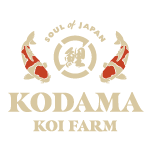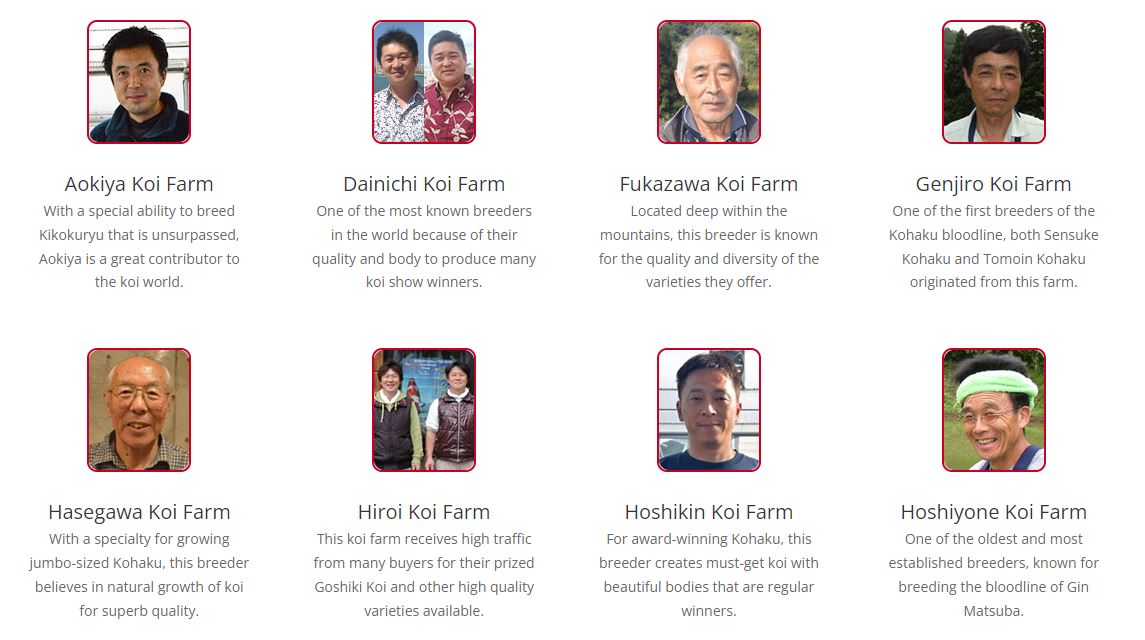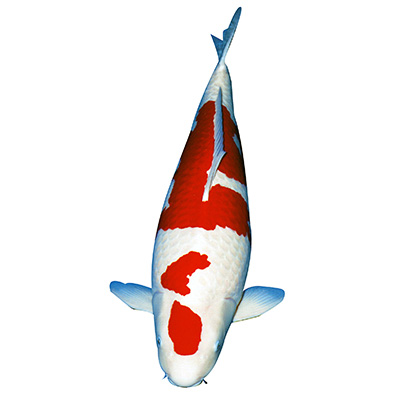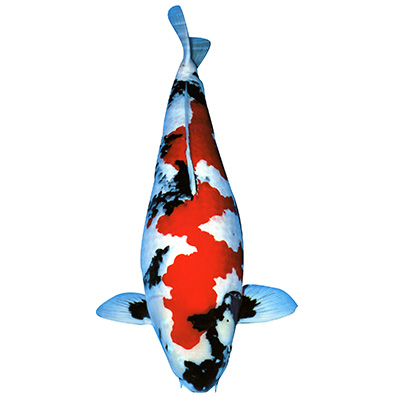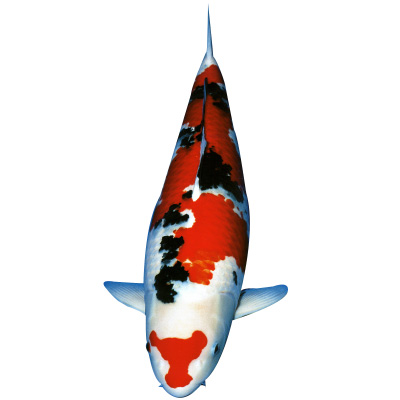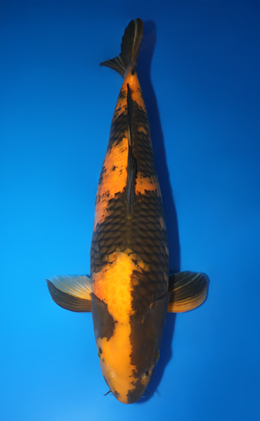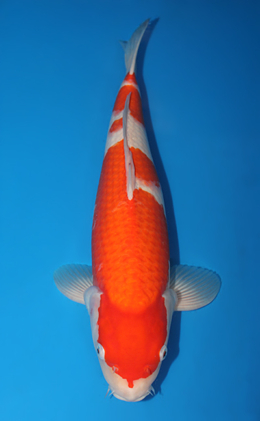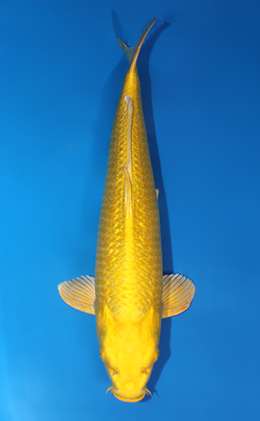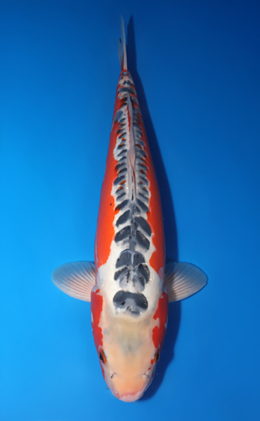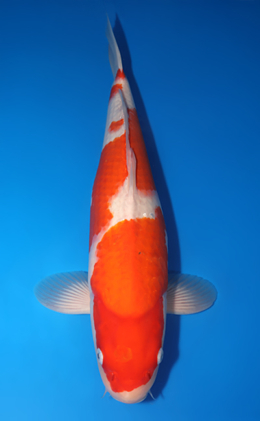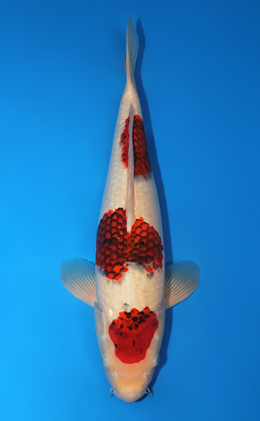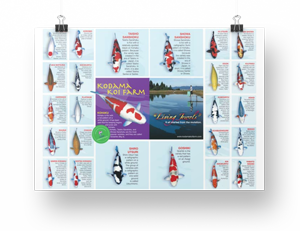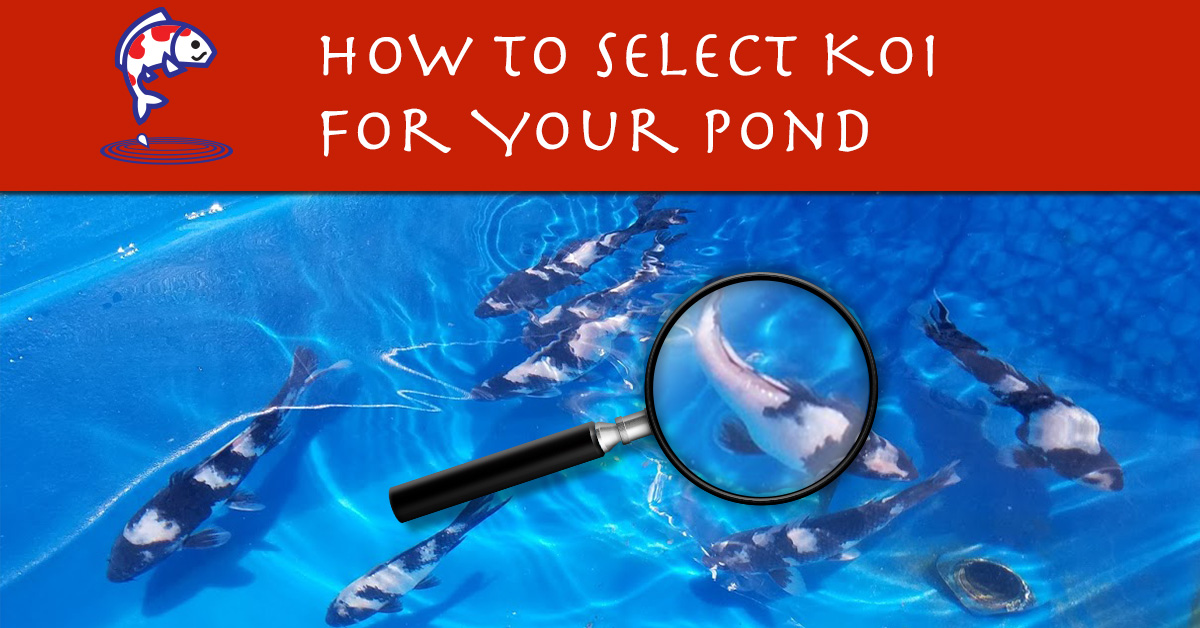
Selecting koi is similar to collecting pieces of living art for your garden. Everyone will select koi for a different reason!
You’ll find some koi hobbyists are looking to show off their koi in competitions, while others have koi ponds for their own family’s enjoyment, and others have koi as a historic tradition to older relatives.
Whatever the reason you’re choosing koi, make sure you improve your knowledge on how to select koi that are healthy, happy, and as described by your koi dealer.
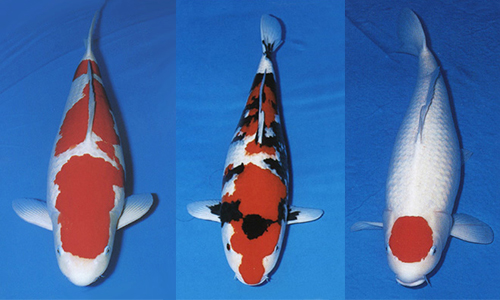
How Do I Select Koi for My Pond?
Find a koi that fits your specific interests. Whether you are just getting started establishing your koi pond or a longtime enthusiast, choosing the best koi for your pond is not a task to take lightly, and will not be done only once.
Each time, you’ll have different priorities based on current pond availability and your koi selections of the past. We hope this list of items to look for will make the search easier. If you still have having trouble, reach out to our team to request a koi fish.
- Choosing the Best Dealer
- The Difference Between Japanese, Domestic, and Imported Koi
- Choosing the Right Breeder
- Selecting Koi Size Based On Your Pond
- The Health of Koi and Proper Quarantining
- The Sex of Your Koi
- Variety of Koi
- Koi Personality
- Value and Price of Koi
- Entering into Koi Competitions
Fun Fact: Did you know there are also hundreds of varieties of koi, and koi have different personalities to consider? And, did you know breeders and dealers make a huge impact on the health and longevity of your koi?
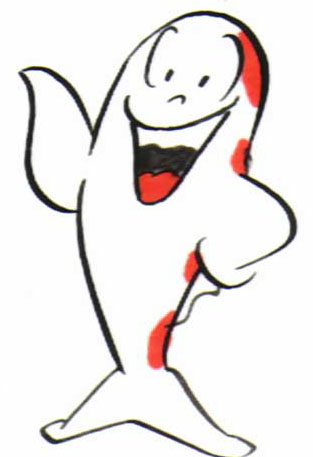
Discover the Perfect Pond Companions!
After learning how to select the best Koi for your pond, explore the different types of fish that thrive in ponds of all sizes! Find the ideal additions to create a balanced, beautiful aquatic environment.
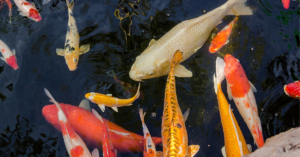
How to Select Koi Fish for Pond (SUMMARY VIDEO)
We know this can be overwhelming, so we are here to assist you with your koi purchasing journey. We dive into each method of how to select koi below, but only will know what is most important in your consideration of which koi will fit best in your pond now and in the future. Read this article to learn more, but first, here are a few top quality koi!
View Our Latest High Quality Koi As an Example
Below are the most recently added koi in our high quality koi category. You may also want to view our koi of the week category to see our most recent recommended that we think is truly a standout option.
Top 10 Things to Consider When You Select Koi – by Taro Kodama
1. How to Choose the Best Koi Dealer
Before you get started with your koi-raising hobby, it is important to find a trustworthy dealer.
Those new to the pastime heavily rely on the honesty, knowledge, and experience of their koi dealer. Finding a right koi dealer, one you can trust, makes a big difference in developing a healthy and thriving pond you can enjoy for years to come.
The first task is to find a good and reliable koi dealer before you select koi for your pond.
At Kodama Koi Farm, we are dedicated to providing you with the healthiest and highest quality Japanese koi.
If you are in the market for dealers, we recommend referring to these 6 questions to ask dealers before making your purchase.
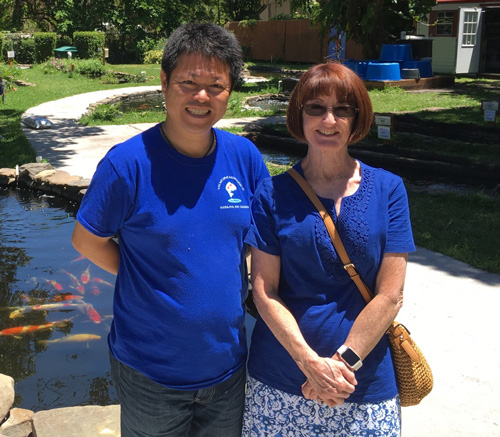
2. The Difference Between Japanese, Domestic, and Imported Koi
Buying Japanese, domestic, or imported koi is a question you have to ponder when looking to purchase. Here are the differences between all 3 types:
Japanese koi are bred and raised by breeders in Japan. Japanese breeders are steeped in the tradition of koi raising, often having passed down lineages and practices for generations. Japanese koi are considered the original and most genuine koi and are known to be of the highest quality. They tend to be the most desirable as they can grow bigger and older than other koi.
Domestic koi are bred and raised by domestic breeders in their country of origin, like the US. They sometimes refer to their koi as Japanese koi when using broodstock imported from Japan.
In reality, broodstock does not assure Japanese quality. The bloodline of broodstock must come with the combination of pairs, environments, culling and breeders’ expertise to breed real Japanese-quality koi. Traditional Japanese breeders do not refer to these types of koi as true “Japanese koi”.
Imported koi can originate in countries like Taiwan, Malaysia, and China and are then exported to the US. Authentic shops sell them as Malaysian koi, Taiwanese koi, etc, utilizing the country of origin in their name. Others, however, may just say “imported koi” which is misleading. These koi are not authentic Japanese koi. So if you see imported koi for sale, ask about their country of origin first before purchasing.
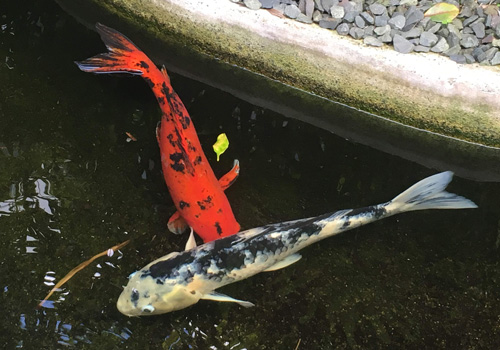
Example of Domestic Koi Fish
What is the difference between Japanese and Domestic Koi?
Here are some differences between the types of koi to keep in mind when purchasing:
Domestic Koi
- Bred in their country of purchase
- Inexpensive
- Usually do not grow large
- Colors tend to be the most vivid when they are small
Imported Koi
- Bred in a country (not Japan) and exported
- Inexpensive
- Usually do not grow large
- Colors tend to be the most vivid they are small
Japanese Koi
- Japan is the origin of koi
- Imported directly from Japan
- Bred and raised as living art by breeders over generations
- Highest quality
- Higher price
- More vivid in color
- Can grow to 40”
- Become more beautiful as they mature
3. How to Choose the Right Koi Breeder
When you get more into this hobby, you’ll begin to understand the importance of bloodline when selecting your koi.
Regardless of how the koi look now, the bloodline or which breeder they come from makes a big difference on how they look and grow in the future. If they come from good koi breeders, good chances are the koi will grow bigger and more beautiful as they mature.
Ask your dealer about the breeder of a koi you are thinking of buying.
Then, do your research, look at reviews, or ask about this dealer to ensure they are reputable. Ask about the breeder’s health of koi and their longevity, and see pictures of mature koi to make the best decision.
4. How to Select Size of Koi for Your Pond
It is important to buy the proper size of koi according to your pond and how many you will keep.
Though they will not outgrow your pond, it is important to know what size your koi may grow to and how many your pond can handle. This depends on your filter’s capacity rather than just the size of your pond.
At Kodama Koi Farm, you can search koi by size by using the search filter or request a certain size of koi to best suit your pond.
5. Choosing Healthy Koi and the Importance of Proper Quarantining
One sick koi could ruin your entire pond, so selecting healthy koi from reputable sources that practice critical health monitoring and quarantining is key. Many koi dealers will have different ways of quarantining their koi.
At Kodama Koi Farm, we buy from top 50 breeders in Japan, checking for any issues at every point — especially KHV, or Koi Herpes Virus, which is very deadly and infectious for your koi. For the first month, we quarantine each breeder’s koi separately. We have our own PCR device running tests several times. At the end of quarantine, we will still submit more samples to the outside laboratory to make sure our koi are free from disease.
In order to avoid cross contamination at the farm, all equipment is frequently disinfected.
All employees must also disinfect their rubber boots and hands before entry. We typically quarantine koi one more time before every shipment so that we can ensure the delivery of healthy koi in the most pristine condition possible.
Once you are back at your own pond, it is important to quarantine your new koi by itself before you introduce the new koi to your pond. Following a proper quarantine setup procedure will ensure a more healthy transition.
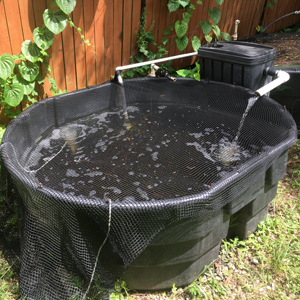
6. Choosing Male or Female Koi – Which Koi Gender / Sex is Better?
The sex of the koi really doesn’t matter unless you are planning on getting into koi shows.
In general, females are more in demand and thus more expensive than males as they tend to eat more, grow bigger and rounder, and therefore go on to win more grand championships. Because of this, people think females are better and demand them more.
Unless you want to grow koi over 30” or you wish to compete at koi shows to win, it does not matter which sex of the koi you choose. If it does not matter to you, I recommend males as they tend to have stronger colors. Also, they tend to have less health issues because they do not carry eggs. They are also less expensive. If you do choose to get females, you’ll need a bigger pond large enough to support their growth.
Here are the advantages and disadvantages of male and female koi:
Female Koi
Advantages
- Grow big
- Grow round
- Whiter skin
Disadvantages
- Egg-bound risk
- Red may not get as strong as male
Male Koi
Advantages
- Stronger color
- No egg related issue
Disadvantages
- White may not get as white as female
- Thinner body
7. Selecting Koi by Variety is Very Common
Do you know there are more than 100 different varieties of koi?
This makes knowing what to choose a lot more complicated and can be confusing. Some collect based on colors or varieties that you like the most. Asian people prefer Gosanke (Kohaku, Snake and Showa). Some see the entire pond and see what colors are missing and decide which one to pick.
Each variety has different color and pattern features. It is a lot of fun to study them, too. You can see several different varieties Kodama Koi Farm carries, such as Kohaku, Showa, and Sanke, here on our types of koi varieties page.
Kohaku Koi
It has been said that koi keeping begins and ends with Kohaku. In any variety that contains red patterns, it’s evaluated on an examination of its Kohaku pattern.
Showa Koi
Showa are beautiful koi, with colors of white, red, and black painted across their bodies. Showa are one of the Gosanke or “Big 3” koi fish along with Taisho Sanke and Kohaku koi. Before 1975, Showa were represented by the lineage of Kobayashi Showa.
8. Select Koi with the Proper Personality
Believe it or not, each koi has its own personality and it can vary by variety type!
Chagoi, Ogon, and Karashi single colored koi tend to have milder and friendlier personality, and you need at least one or two to lead the school of koi in your pond.
In addition to koi’s personality, feeding Manda Fu will also help your koi have a friendlier temperament. Manda Fu is one of kois’ most favorite food, and many owners have even trained their koi to hand feed with Manda Fu.
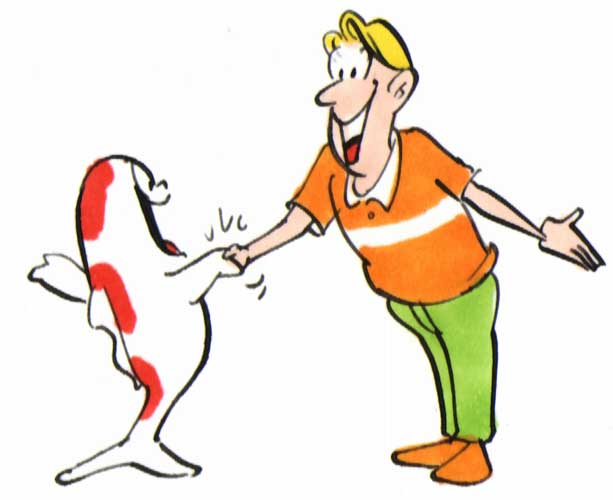
9. The Value and Price of Koi
Price is important to consider when you buy koi. The more you study koi, the more you understand the value of koi and why some people will spend thousands of dollars on a single fish.
There are five major factors that impact a koi fish’s value:
- Size
- Beauty
- Sex
- Bloodline
- Rarity
When you are just starting this hobby, there is no need to begin with expensive fish. There will be a learning curve and the loss of koi is unfortunate, but to be expected.
Once you feel more comfortable and practiced, you can start adding more valuable koi to your collection. Kodama Koi Farms has plenty of koi options for under $500 which is a good medium range cost for a quality Japanese koi fish. Contact us if you want to check the value of a koi.
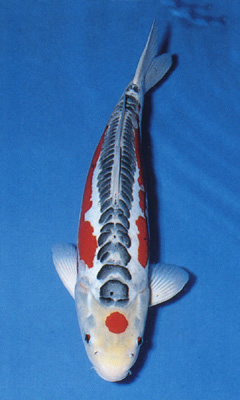
No matter which koi you choose to invest in your happiness, trusting your dealer is very important.
A trusted dealer will be fair in their offering prices and have healthier koi. Sometimes, dealers overlook the value and put a low price on koi — these dealers should be avoided and not trusted.
10. Selecting Koi for Koi Shows
Showing koi is a favorite past-time of many koi owners to display their hard work.
If you’re interested in entering into competitions, you have to buy koi that have a chance to win or can grow into a winner.
Keep in mind koi do not have to be the biggest fish in the pond in order to be grand champions.
There are many ways to win from size to color to variety. There are many local shows and you can have a great chance of winning an award when you select a high quality koi from your dealer.
We also run Kodama Koi Show, which is an entirely virtual and online koi show where you can win great prizes and show off your hard work without transporting your koi.
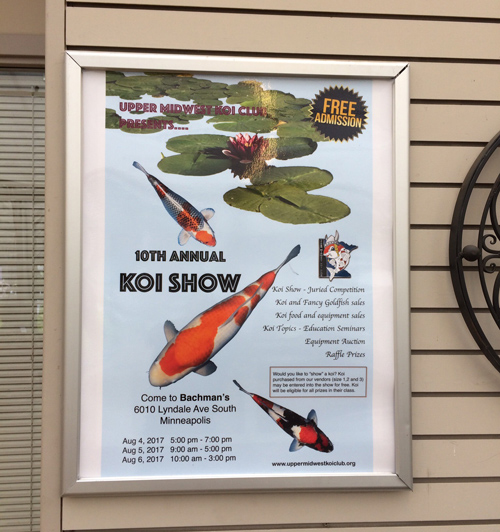
Learn More from the Koi Master
Understanding your pond situation, decide what size and variety you will try to win with and find potential winners for the range.
To learn more about koi appreciation and competitions, we strongly recommend Mr. Kodama’s books and seminars:
Kokugyo: Considered the bible for koi judges and discusses koi appreciation in more detail.
Kokugyo 2: About koi development. Learn how koi change physically as they grow in age.
Kokugyo 3: Compilation of Mr. Kodama’s 50-year koi career and collections of the most distinguished koi.
Koishi: Features intensive interviews with koi breeders. It is a great book for those interested in learning about breeders and bloodlines.
Kodama Koi Academy videos also are also full of information regarding the raising of koi. We host Kodama Virtual Koi Shows to support koi masters of all ages. You can learn more about what judges look for in award-winning koi by watching the 1st Young Koi Show award ceremony below.
Conclusion: Select Koi to Make Koi a Lifetime Hobby
No two koi are the same, and there are many considerations when it comes to selecting the right ones for you, but a wrong decision can make you unhappy and discouraged.
Once you make the proper decision to finding the right fish for your pond from a healthy and KHV-free dealer, caring and enjoying your koi is a wonderful life-long hobby. We hope you will consider koi from Kodama Koi Farm.
Educating koi hobbyists is the passion of Mr. Kodama, the founder of Kodama Koi Farm. Thanks to him, we maintain great relationships with top breeders in Japan and have a very strict quarantine protocol so we can deliver the healthiest, highest quality koi. We stock more than 30,000 Japanese koi and our inventory is easily searchable online so you can find your dream koi. And of course, if you do not see what you like, you can always make a request.
We do not consider ourselves just a koi sales company, but more importantly, your partner for a successful and joyful koi hobby. We never stop learning and compiling our knowledge to guide our customers along the way. We’re here to be a lifelong partner in our customers’ koi passion.
Please feel free to contact us with any more questions to help you decide.
Top New Koi Available On Kodama Koi Farm
View all our koi available online here to see our full selection of koi to choose from. You can also view multiple pages below to see our list of recent koi added to the website. Enjoy and happy shopping!
Thank you for reading, please leave any questions or comments on the article below:
